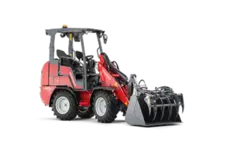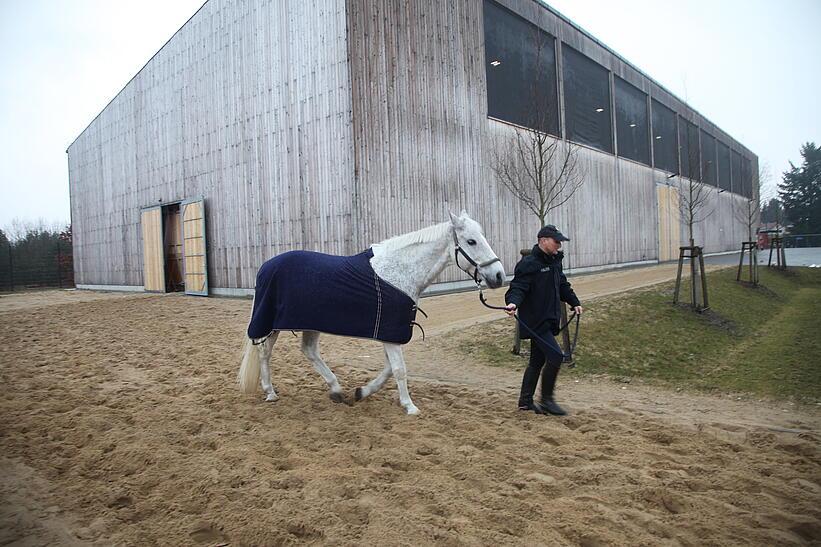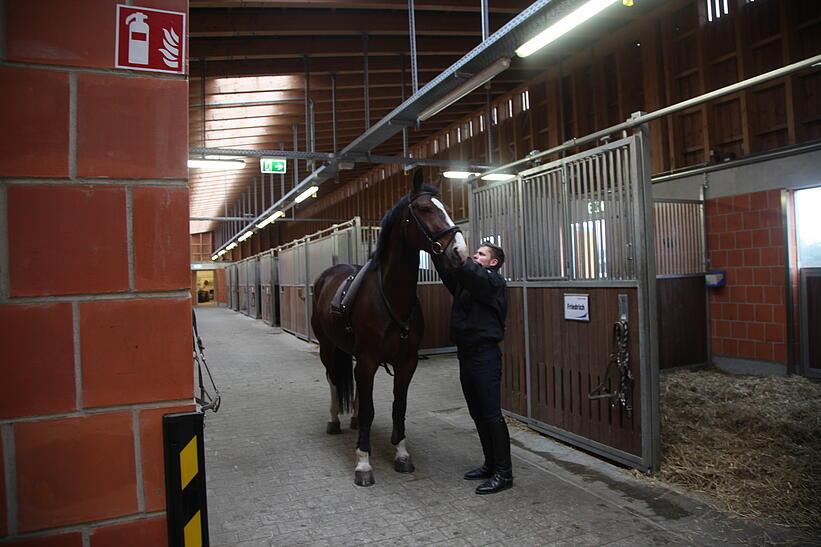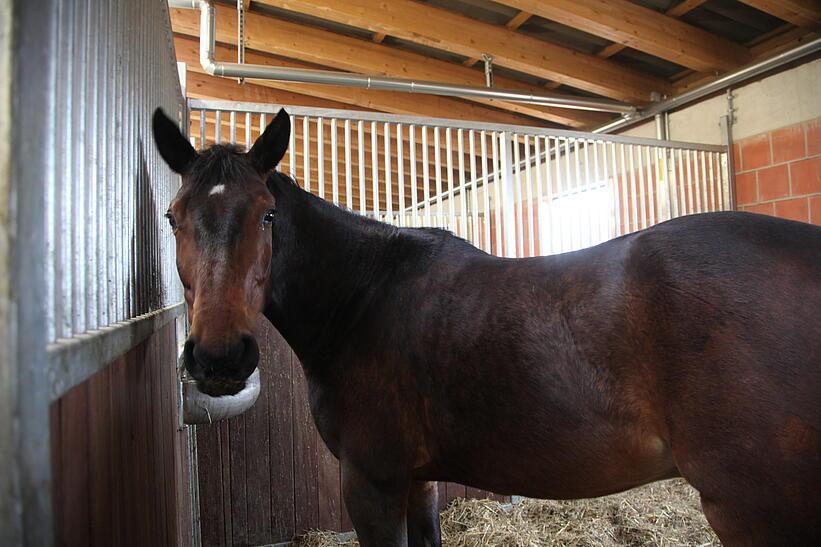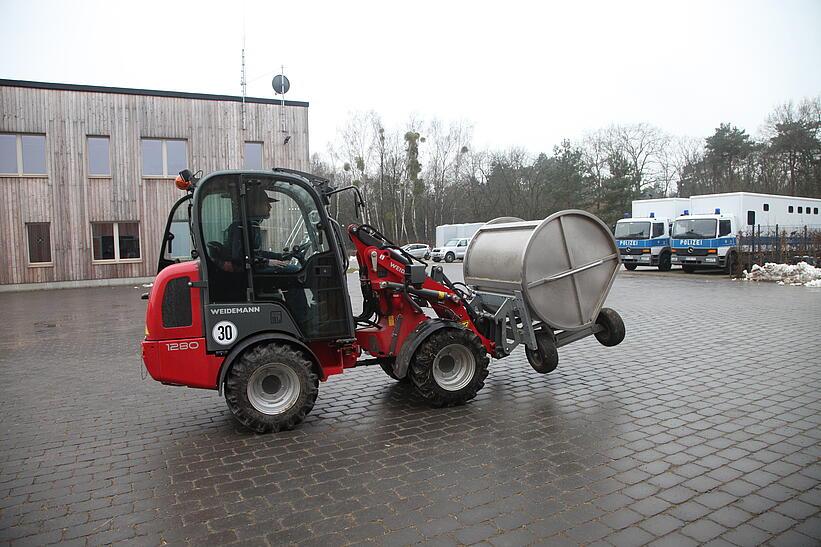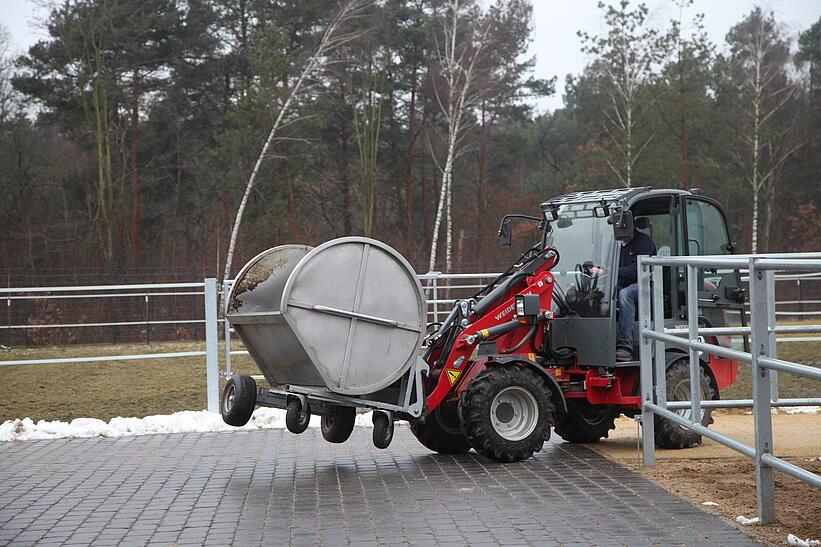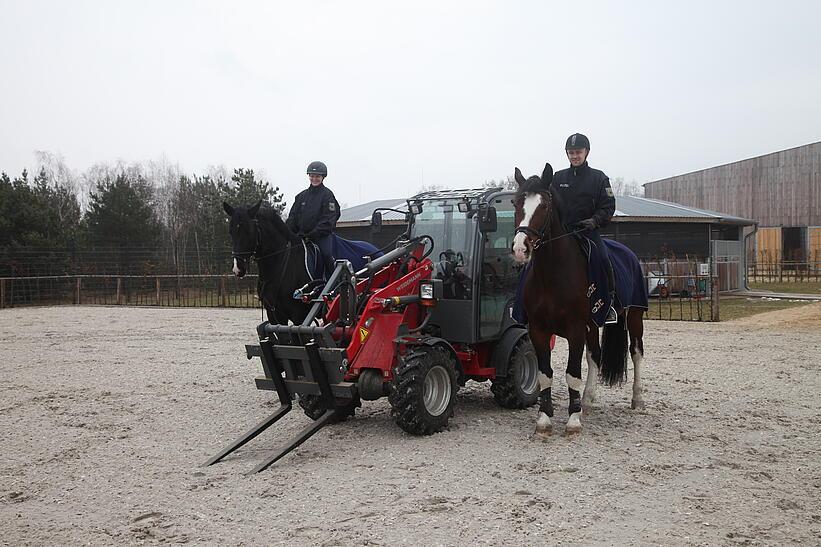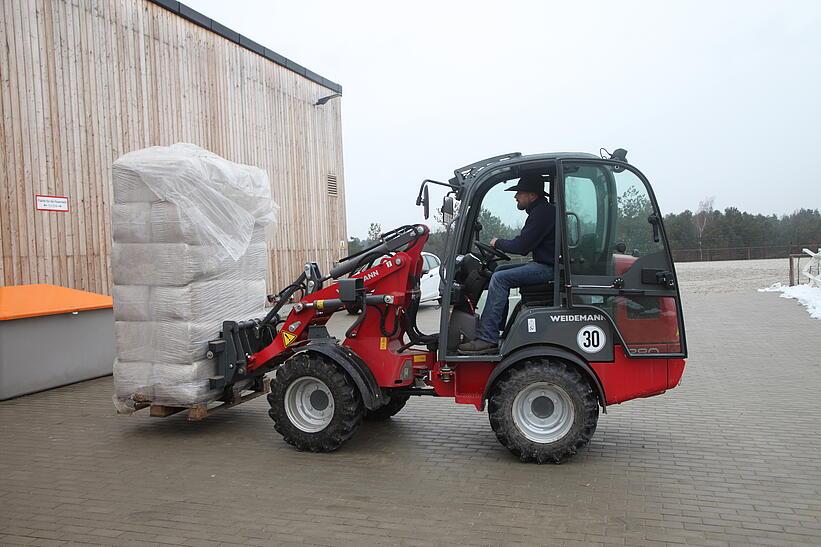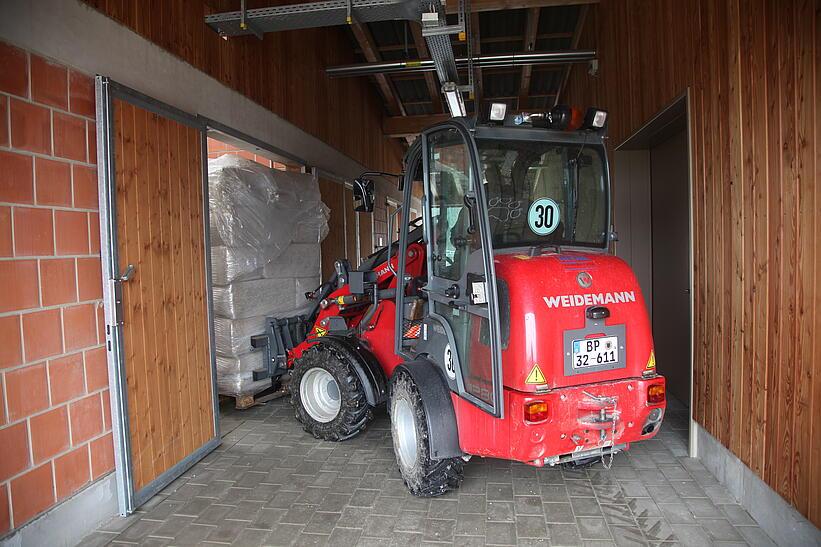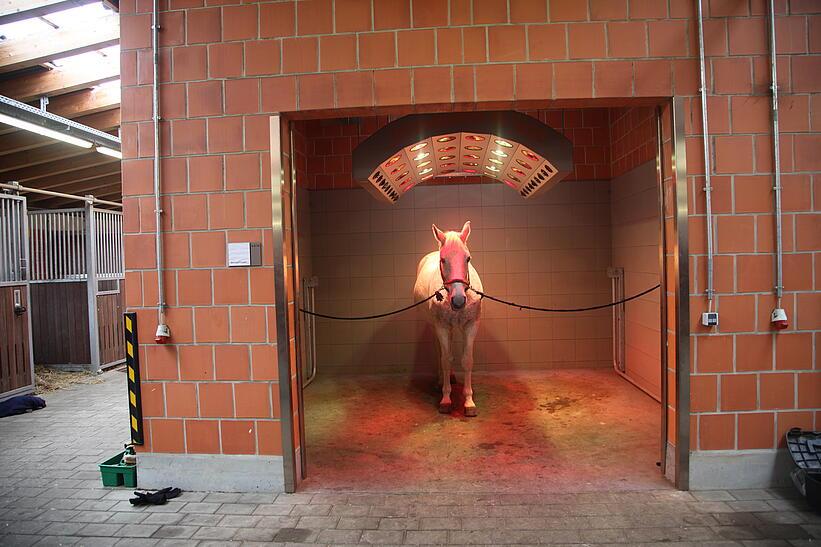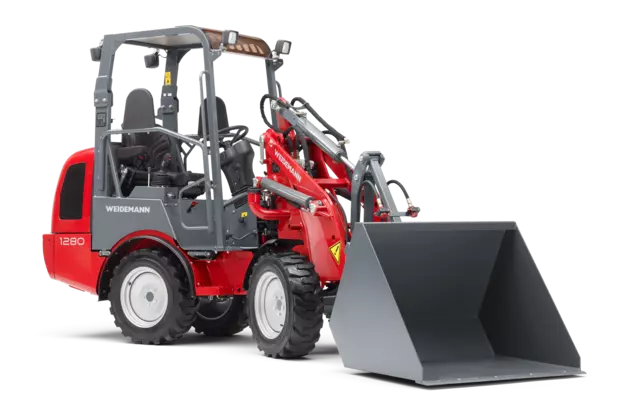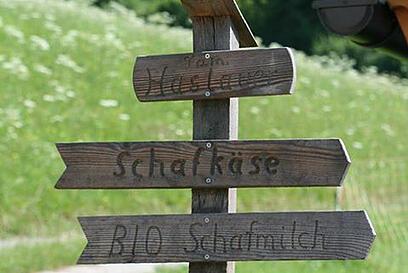A new colleague for the police.
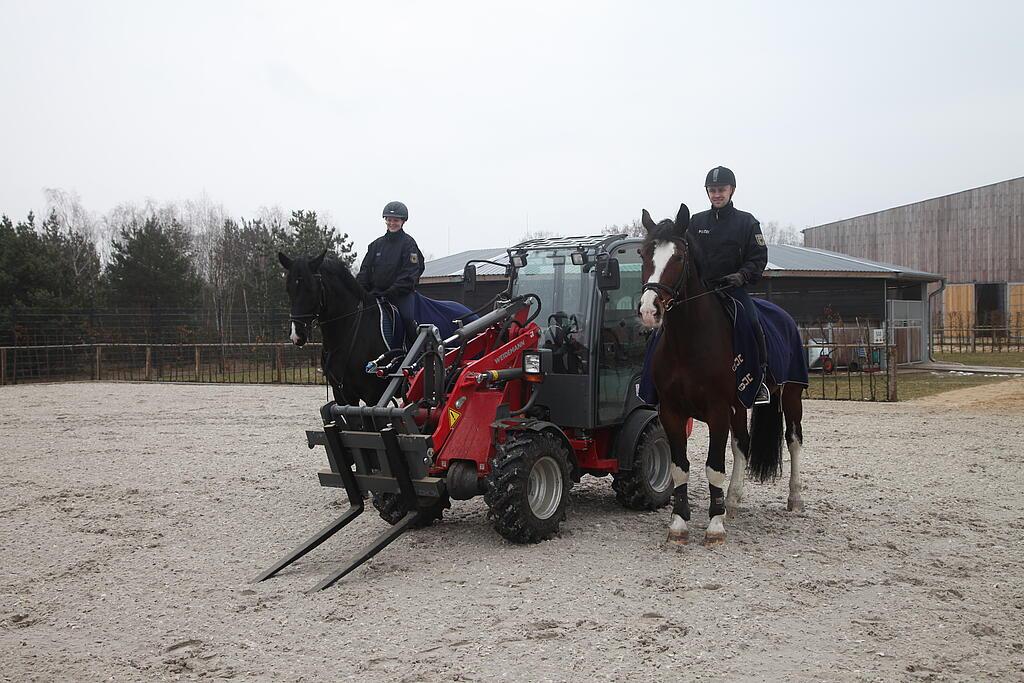
The cavalry division of the Berlin federal police force own a 1280 for the daily works in the stables.
End of March 2017, the cavalry division of the Berlin Grunewald federal police force moved to Stahnsdorf (municipality in the administrative district of Potsdam-Mittelmark). Because the premises on the previous grounds in Berlin were completely exhausted after a certain amount of time, they had to look for a new location. The decision was made for Stahnsdorf because the police already disposed of large grounds there, and now they have created the perfect vicinity for horses and riders.
The cavalry division currently has 19 horses. “For us, the welfare of the animals has highest priority”, Alexander Hönicke explains. He is police chief inspector and deputy head of the cavalry division in Stahnsdorf. Ideally, the horses go “on patrol” six times per week for four to six hours. The horses are transported with 2x/4x lorries or respectively with horse trailers. But the horses are also employed for special tasks such as demonstrations or football events. “To be suitable for the cavalry division, the horses should be curious, sensitive, calm, and in very good health condition”, Alexander Hönicke adds. Furthermore, the horses need to be of a certain height to be able to look over crowds. During purchase, the police also look for good hoof growth. This is because the horses often have to walk over asphalt during deployment.
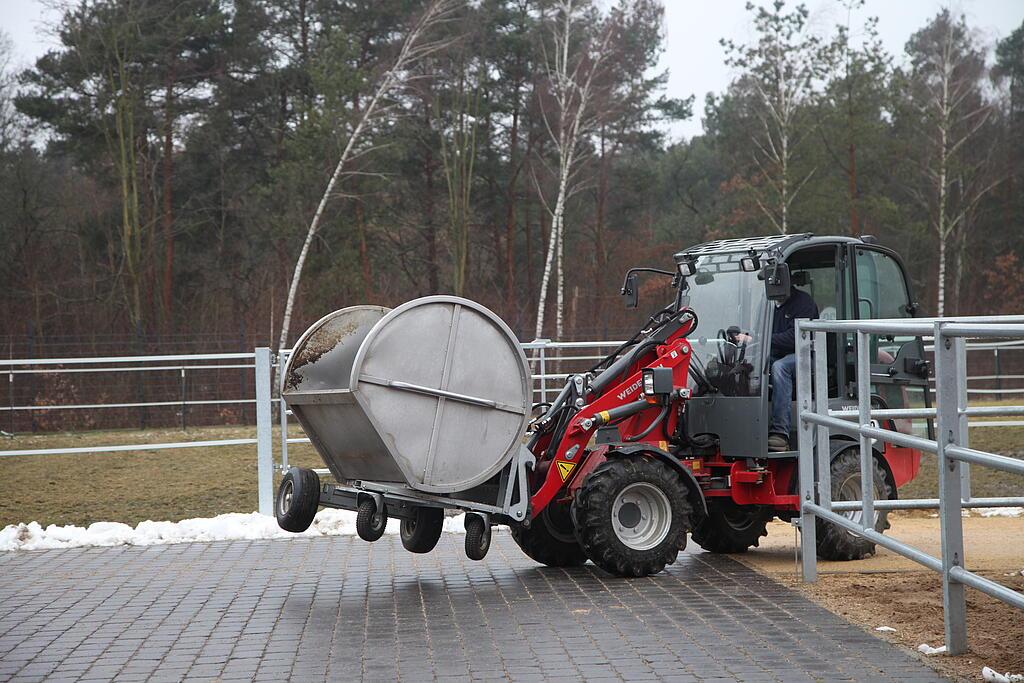
Everyday life on the horse district
For daily work in the stables, the grooms use a 1280. There, the Weidemann has the following tasks: Transport of manure containers, screeding the riding arena, loading and unloading feed and transporting chips to the stables. To be able to handle these works, the cavalry division also bought a pallet fork, several manure containers and others beside the 1280. The next attachment planned is a light materials bucket for filling the paddocks with sand. Currently, the grooms are doing this by hand. During purchase, the horses are between three to six years of age. After successful training, they serve the cavalry division for up to 14 years. The horse training takes up to a year. It is important that the horses get used to unpredictable circumstances, such as occur during demonstrations or riots. “Confidence building between horse and rider is decisive here”, the police chief inspector underlines.
Due to the long paths on the new property the 1280 with 30 km/h option really presents support for the police cavalry division. According to weather conditions, the machine works two to three hours a day. “The pivoting articulation of the machine is excellent. This makes the machine very manoeuvrable and able to pass around tight corners in the stable”, Alexander Hönicke adds pleased. The cavalry division already knew of Weidemann before their purchase. When the decision to buy a farm loader was taken, several manufacturers were available for choice. Amongst them was Weidemann. Then, two officials obtained information from the Weidemann dealer REMA Fahrzeug- und Landtechnik GmbH. After receiving advice, the decision was made for the 1280. “We are all happy and very pleased to now have technical support and no longer have to do the accruing works by hand. That always took a lot of time and power,” Alexander Hönicke determines enthused.
